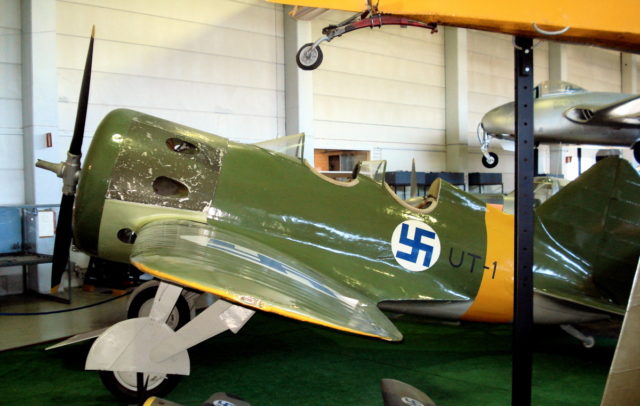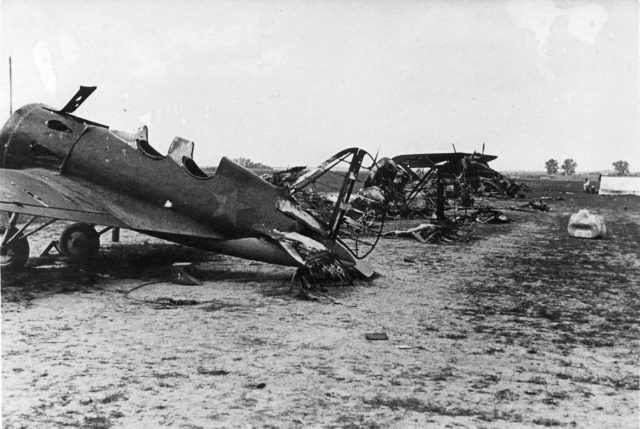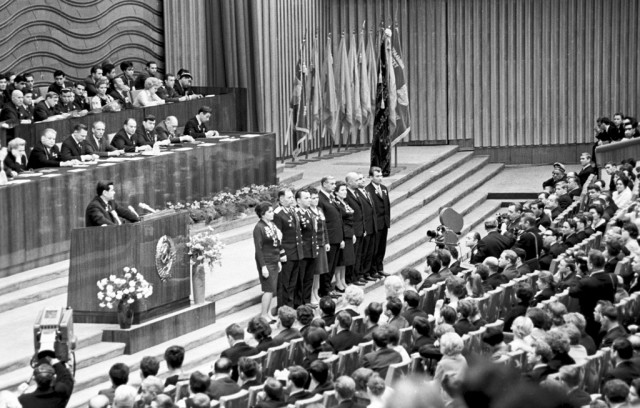Alexei Maresyev was a celebrated Soviet pilot and a Hero of the Soviet Union, who became famous for his determination to continue the fight, even after his both legs were amputated due to wounds and frostbite. Born in 1916, in a family of four children, he was considered the weak one, since he had experienced pain in his joints from a very early age. He spent his childhood in a remote village which was four kilometers away from his school. Due to his illness, his brother sometimes almost had to carry him home.
His health issues made it difficult for him fulfill his dreams of becoming a pilot. He joined the political youth organization of the Soviet Union, Komsomol, in his teens. As a member of Komsomol, he was sent as a worker to participate in the construction of Komsomolsk-on-Amur, a city in the Russian Far East, which was founded in 1932.
Even though young Maresyev disliked the idea of being sent so far from home, the event turned out to be a game-changer. His health began to improve, and he joined an air club. Later, he joined the Army and served in the Soviet Air Force as a technician. This was the turning point in his life, and he managed to enroll in a college for professional pilots. As soon as his education was finished, he got the chance to prove himself in the field, when the Germans invaded the Soviet Union in 1941 and swiftly penetrated deep into Russian territory.

He was sent to the front as a fighter pilot and by early 1942, he had four confirmed dogfight victories. During the first years of the war, Germans had far superior airplane technology, and they dominated the skies above Russia. In 1938, The Soviet Union had the largest air force in the world, but the Soviet aeronautical designs distinctly lagged behind Western technological advances.
Instead of developing tactical fighters, before the war, the Soviets focused on building long distance bombers that were set for record-breaking flights. Furthermore, they produced planes specialized in stunt maneuvers. It was all a propaganda effort since the early Soviet Union wanted to prove itself as a Mecca for technological advance, in the name of the progress of humanity.
However, the Polikarpov I series proved to be among the top fighters during the 1930s. They saw combat in the Spanish Civil War and the Second Sino-Japanese War. Unfortunately, the 1940s brought the new generation of, usually inferior fighter planes. When Germans invaded, it was obvious that the Soviet Air Force was no match for the Luftwaffe’s combination of strategic planning and advanced technology.

During the first year of the war, Soviet pilots were dropping like flies. Maresyev flew an I-16 monoplane, nicknamed the ‘Donkey’ by the pilots for it was small, but durable. On the 4th of April, he was shot down and crashed in a forest. His legs were badly injured, and he crawled for eighteen days and nights to reach the Soviet lines of the front. It is claimed that the villagers in the occupied area helped him reach some friendly units.
They hid and fed him and gave immediate medical attention to his wounds. When he finally returned to the Soviet-held front-line, both his legs were badly frostbitten, and the doctors had to amputate them. It is a true miracle how he survived, but the story of his return to the battlefield is even more miraculous.
Prosthetics were made and he started extensive training to master the use of his artificial legs. First, it was the struggle to regain basic motor skills and after that, he had to master flying all over again. In 1943, he returned to the front as a fighter ace and was an inspiration to his fellow troops. He became a squadron leader and on a single mission downed three German airplanes. That same year, on August 24th, he was awarded the Hero of the Soviet Union medal. In total, Maresyev flew 86 combat missions, with 11 confirmed kills.

After the war, his story was turned into a book called “The Tale of a Real Man,” by the Soviet writer, Boris Polevoi. The book was turned into a film and an opera written by the acclaimed Soviet composer, Sergei Prokofiev. Alexei Maresyev, who was humble by his nature, refused to take so much credit for his actions.
He would often give statements like: “I’m a man, not a hero”, or “There’s nothing extraordinary in what I did. The fact that I’ve been turned into a legend irritates me.”
He later became a member of the Supreme Soviet of the Soviet parliament, advocating the rights of the disabled and war veterans. Maresyev was a beloved figure and a large theater tribute was organized in 2001, just a few days before his 85th birthday. He died that day, 20 minutes before the start of the play. Schoolchildren all over the Soviet Union were taught of his heroic acts, and he remains a prime example of human determination and bravery in war.